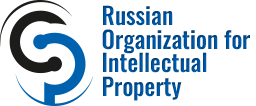Russia and Singapore share experience in managing intellectual property
A two-day conference ended in Singapore which was dedicated to intellectual property as one of the key tools of the digital economy. The conference was organized by the IPChain Association and the Skolkovo Foundation. Countries exchanged experience in managing intellectual property rights.
There are no natural resources in Singapore, therefore the main value of the country is people, human capital. And intellectual property is the result, fixation people’s creativity, said Andrey Krichevsky, President of the IPChain Association.
In Singapore the state is both the creator of intellectual property and the infrastructure manager in this area. In Russia, according to Krichevsky, there is no such systemic practice yet. The IPChain Association has been created for sustainable communication between participants in the intellectual property market.
“We live in a digital world, therefore, first of all, IPChain is a repository of information on patents and trademarks, copyright and related rights items,” explained Krichevsky. – We provide infrastructure for digital transactions, for those who want to use blockchain technology and smart contracts. We pay great attention to security, so we chose Hyperledger technology (open source) to protect transactions and nodes.”
According to Walter Chia, Deputy Director of the Intellectual Property Office of Singapore (IPOS), Asia is the world’s largest intellectual property market. 65% of all patents in the world and 66% of all world brands are registered here. IPOS helps entrepreneurs register and protect intellectual property rights. It also provides businesses with the opportunity to use intellectual property created at the expense of the state.
At the same time, Walter Chia emphasized that intellectual property is not only patents and trademarks, but primarily a business tool. Its importance is growing all over the world, because many companies today are developing according to the model of shared economy. For example, Instagram does not own photos, and UBER does not own cars. And the bulk of the cost of the iPhone is Apple’s intellectual property, not the hardware itself.
“It is important to understand that a patent is not a finished product, but only its draft, on the basis of which it is already possible to create and develop some technologies,” added Andrey Krichevsky.
Another topic of the conference was technology in the field of law activities (legal tech). Paul Nio, Chief Operating Officer of the Singapore Academy of Law (SAL) spoke about the FLIP program, a platform that brings together the virtual community, coworking and an accelerator for legal tech startups. The program was launched in 2016, and now it has about 70 startups. One of them, for example, has developed software that facilitates legal workflow for small companies.
According to Paul Nio, since the dot-com crisis in the early 2000s, Singapore has become an attractive jurisdiction for online businesses and legal tech startups. However, there are only 5,500 licensed lawyers and about 900 law firms in the country, most of which are small.
Accelerator program FLIP will be launched in April this year. This is a 100-day advisory program that will help legal tech startups find investors. The acceleration program involves pre-seed financing, assistance with a business plan, hackathons, a demo day and pitches so that startups have the opportunity to present their projects to potential investors.
Currently SAL, the Skolkovo Foundation and the IPChain Association are discussing the prospects of cooperation, as a result of which Russian legal tech startups will have the opportunity to undergo acceleration in Singapore. As noted by Paul Nio, FLIP can help Russian startups become more productive – in particular, in search for digital information. Artificial intelligence search services can help with that.

